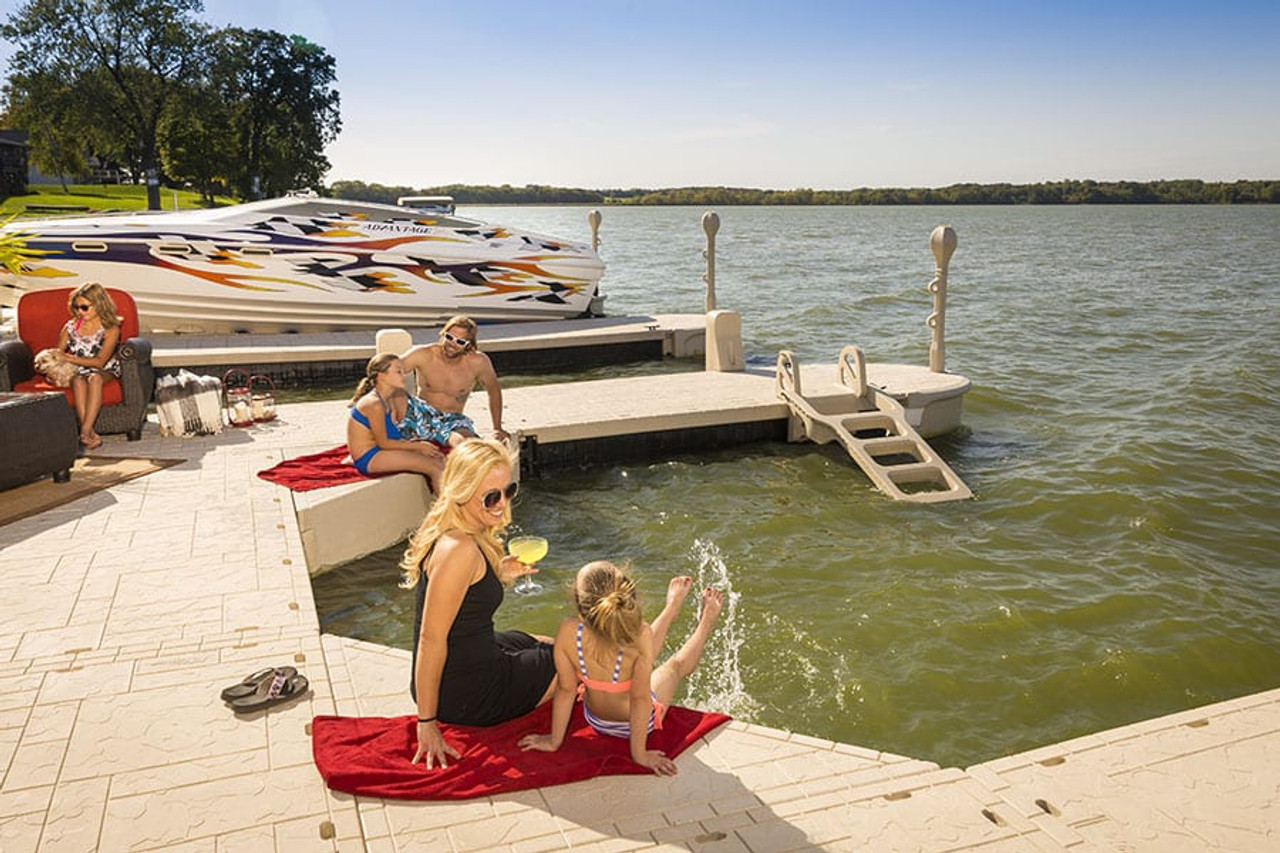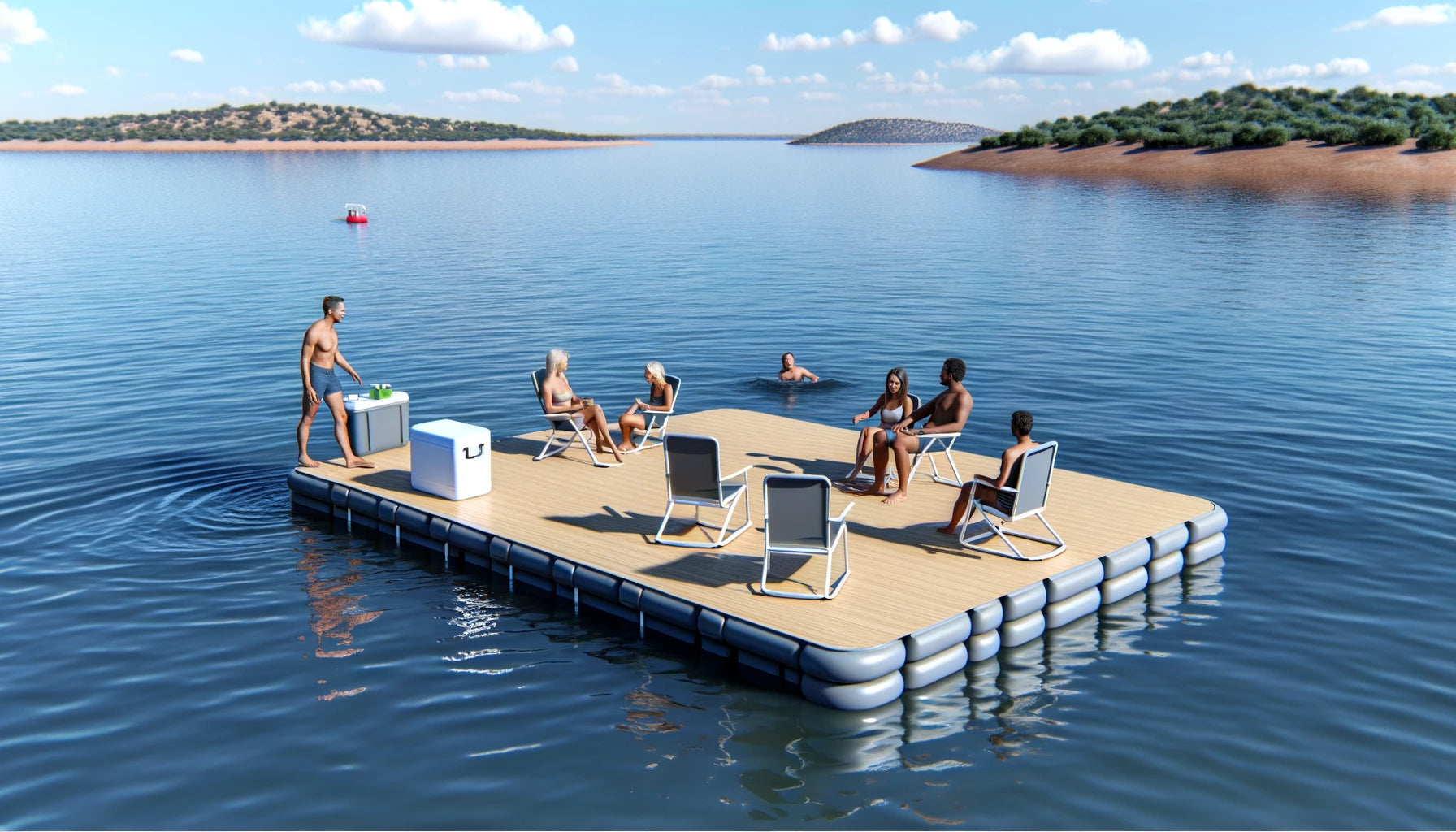Discover the Variety Of Floating Dock Providers Designed to Suit Every Boater's Requirements
Discover the Variety Of Floating Dock Providers Designed to Suit Every Boater's Requirements
Blog Article
Floating Docks: The Suitable Option for Versatile Water Access
Floating docks present an engaging service for a range of water accessibility needs, offering adaptability that transcends standard mooring choices. Their ability to adapt to fluctuating water degrees while making certain security and safety and security makes them particularly beneficial for both business and leisure applications. In addition, the modular nature of floating docks assists in customization, catering to details requirements. The nuances of installation and upkeep, alongside the array of applications, necessitate a closer exam to fully appreciate their potential benefits and ramifications for river access methods.
Advantages of Floating Docks
Floating docks deal various advantages that boost water access for numerous applications. Their capacity to drop and increase with transforming water levels makes them especially beneficial in environments with varying tides or seasonal variants. This adaptability guarantees that vessels can quickly tie without problem for the water's deepness, supplying a dependable system for recreational, commercial, and industrial uses.
In addition, floating docks are often created from durable materials that stand up to rust, making them appropriate for long-lasting usage in aquatic atmospheres. Their setup is usually less invasive than conventional set docks, reducing the ecological impact and helping with quicker deployment (floating dock services). This adaptability permits less complicated moving or reconfiguration according to customer demands or ecological adjustments
Safety is another essential benefit; floating docks can give stable accessibility for individuals boarding or getting off from boats and minimize the danger of accidents associated with unsteady surface areas. They can be developed to fit a variety of devices, such as fenders and cleats, improving capability. On the whole, floating docks stand for an efficient remedy for improving water access throughout diverse sectors while advertising safety and security and environmental sustainability.

Types of Floating Docks
Various kinds of floating docks satisfy different needs and settings, each designed with particular features to maximize performance. One of the most common types consist of modular docks, which include interlacing areas that enable for very easy personalization and development. These docks are suitable for leisure usage, as they can be customized to fit various watercraft dimensions and water conditions.
An additional prominent option is the stationary floating dock, which remains secured in position but drifts with changing water levels. dock company. This kind is specifically fit for locations with minimal tidal variations, supplying stable gain access to for fishing or swimming. Additionally, there are drive-on docks, which feature a sloped style that enables watercrafts to quickly drive on and off, making them ideal for individual boat and smaller vessels
For business applications, sturdy floating docks are readily available, created from reinforced materials to withstand considerable loads and rough aquatic settings. Environmentally friendly floating docks utilize sustainable materials and designs to lessen ecological influence, frequently integrating attributes like plants to support regional wildlife. Comprehending the numerous kinds of floating docks makes sure that customers can select one of the most ideal option for their details demands.
Installment Process Overview
A successful installment of floating docks calls for careful preparation and attention to detail to make sure ideal performance and safety and security. The initial step entails examining the site conditions, including water depth, current, and possible obstacles. This analysis informs the selection of the proper dock products and layout tailored to the specific atmosphere.
Next, acquiring essential licenses is important, as several territories have regulations relating to building on water bodies. The setup can continue once authorizations are Learn More safeguarded. Begin by preparing the foundation, which might entail anchoring systems or pilings customized to the dock kind and regional conditions.
Adhering to the foundation arrangement, assemble the dock sections according to manufacturer requirements. Make sure that all parts are firmly fastened and lined up to stand up to ecological stresses. Placement the dock in the designated area, ensuring it is level and steady.

Upkeep Tips and Ideal Practices
After the installation process is full, recurring upkeep plays a vital duty in guaranteeing the durability and functionality of floating docks. Normal evaluations need to be carried out to recognize any indicators of wear, damage, or deterioration - dock company. Check for any kind of loosened fittings, splits, or splitting up in the dock sections, as these can compromise architectural honesty
Cleaning the dock is vital to get rid of particles, algae, and various other accumulation that can influence its appearance and safety and security. Use a mild pressure laundry periodically to preserve cleanliness without triggering damage to the surface. Additionally, using a safety sealer every few years can help improve durability and withstand ecological wear.
Take notice of the mooring lines and supports, ensuring they are free and safe and secure from deterioration. Replace any kind of degraded parts promptly to avoid hazards. Seasonal modifications might also be required; Resources throughout severe climate condition, enhancing the dock or repositioning can protect against damage.
Applications for Floating Docks
Floating docks offer a plethora of applications, accommodating both entertainment and commercial needs. In recreational settings, they supply smooth access to waterways for tasks such as boating, angling, and swimming. Their adjustable nature enables setup in varying water degrees, ensuring steady and secure gain access to no matter tidal changes.
Commercially, floating docks are important for marinas and waterside organizations. They facilitate the docking of vessels, enabling effective unloading and loading of products. Their modular style permits simple expansion or reconfiguration to accommodate changing organization demands, making them optimal for boat rentals, excursion operations, or fishing charters.
In addition, floating docks are made use of in ecological applications such as aquatic research study and habitat restoration. They can function as systems for scientific studies, monitoring water top quality, or performing wildlife surveys without troubling sensitive communities.
In commercial contexts, floating docks are employed in building and construction jobs, offering access to hard-to-reach areas for equipment and workers. Their flexibility, resilience, and minimal effect on the atmosphere make them an ideal selection for a broad array of applications, enhancing both capability and accessibility in different water-based settings.
Final Thought
In final thought, floating docks represent an optimum remedy for varied water gain access to needs, owing to their versatility, resilience, and modular style. Floating docks serve as a useful property for recreational, industrial, check my blog and environmental jobs, ensuring trustworthy accessibility to waterways and advertising lasting practices in aquatic settings.
Floating docks existing an engaging service for a variety of water accessibility requires, providing versatility that transcends standard mooring options.Floating docks deal many benefits that boost water gain access to for numerous applications. On the whole, floating docks represent a reliable option for enhancing water gain access to throughout varied sectors while advertising safety and ecological sustainability.
An additional popular alternative is the stationary floating dock, which continues to be anchored in location yet floats with altering water degrees.In final thought, floating docks stand for an ideal service for diverse water gain access to needs, owing to their adaptability, durability, and modular style.
Report this page